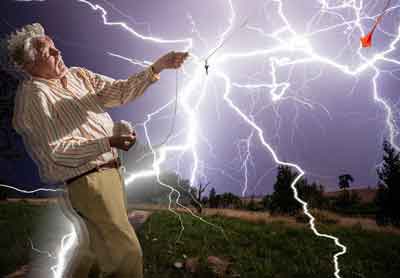It’s 4th of July, our nation’s birthday, a time for celebrations with friends and family and fireworks! I love fireworks. As I thought about this week’s blog, I, of course, went to Katy Perry’s awesome rocky song, “Firework.” I had thought to explore firework idioms, but upon listening to her song, I realized it was full of idioms in itself. So, today’s topic is the examination of the idioms in the song.
This song, as many of Perry’s songs, has a ton of cultural references. Here are two basic categories: negative situations and positive ones. The negative ones are how people might be feeling because of life circumstance, and the positive ones are Perry’s suggestions for overcoming them.
Negative Cultural Idioms
Paper Thin
Think about a sheet of notebook paper. It is easily torn because it is so thin.
This phrase is used to describe feeling inadequate for a task; it can also be used to mean overextended as in
“The ESL 301 summer class has me feeling paper thin!”


House of Cards
When you build something with playing cards, even a breath can cause it to crumble. It is not substantial or secure. Similarly, if you are in a house of cards, this means your situation is precarious. For example,
“Not taking control of your own grammar in writing means your grade is built on a house of cards.”
Cave In
This is another way to express a complete collapse since when the roof of a cave falls down, the entire structure can be destroyed. Hence,
“Being late to Mrs. C’s class over and over is causing our academic relationship to cave in.”


Buried deep (or under) AND 6-feet under
In the USA, one of the ways we take care of the deceased is by burying them in the ground, generally at least 6-feet deep.
There was a very poplular HBO drama in the early 2000’s titled “Six Feet Under” about a mortician family. You can read about it if you’re interested.
https://en.wikipedia.org/wiki/Six_Feet_Under_(TV_series)
To be buried 6-feet under is also used to refer to being completely overwhelmed. So, you might say,
“I am being buried six-feet under by all the work in the ESL 301 summer class.”
Waste of Space
This is a phrase that comes from space in a room that is too small or inconvenient to be a productive part of the house. However, it is usually applied to people as someone who is “wasting” space on the planet is not contributing in a meaningful way. One could say then that
“Students who don’t participate in class are just a waste of space.”


Closed Door
This is an obvious reference to closing something off. This can be used for “private” or “exclusive” situation like a “closed-door meeting.” It can also be used an in the opportunity or path is no longer accessible, so the “door” has been closed. For example,
“Being a writing instructor takes all my time so being a supermodel is a closed door for me!”
Positive Idiomatic Overcoming References
Spark
This has multiple meanings, but the most applicable here is that a spark is used to start a fire. Similarly, an idea or thought can spark action in a person. Thus, because my goal as a writing instructor is to “spark” critical thinking and life change in my students, I could say
“The lesson that compared the writing process to creating a recipe in the kitchen really sparked a lot of critical thoughts in my ESL 301 class.”


Let Your Light Shine
This is an interesting reference that has both a physical and religious one. If you think of a lighthouse which lights up the safe path on the ocean for ships, similarly, letting your positive spirit shine out can light the way for others. Another meaning is based Matthew 5:16 that states “Let your light shine before others that they may see your good deeds and glorify your Father in heaven.” With either reference, the idea is the same: letting your thoughts or deeds come out of you like a “light” so that others can see. Thus,
“Mrs. C’s passion for good writing is a shining light for her ESL 301 class.”
Own the Night
When you own something, you are technically its master. “To own” is often used to demonstrate mastery of some skill or situation. To own the night means to take full advantage of the situation, to be the boss of it. If you own the night, it could mean that you own the stars, the universe, the whole world! It could be used in various contexts, but here’s one:
“My ESL 301 students really owned Essay 1 this summer!”


What You’re Worth
A more common usage of this term is “for what It’s worth” which is used to express one’s personal opinion on a topic as opposed to an expert opinion. The usage of “what you’re worth” in the song implies that you are worth a great deal and you need to embrace it! For instance,
“I don’t think my graphic designer understands what he’s worth, but I sure do! I think he’s awesome!”
After the Hurricane
Comes the Rainbow
Another common usage of this idea is that after a storm comes a rainbow. Physically, it is true. Rainbows often occur after there’s been a lot of rain. Idiomatically, what it means is that dark times or storms will come to everyone’s life, but nothing lasts forever. The beauty and majesty of a rainbow, positive aspects of life, will follow darkness. We have lots of idiomatic expressions for this idea; one of my favorites is “it is always darkest before the dawn.” Another is “there is a light at the end of the tunnel.” So, for my summer writing students,
“We are starting week 5, so we are at the half-way point! See the light at the end of the tunnel!”


Lightning Bolt
While this image has both positive and negative aspects, here I believe it used as the idiomatic expression “be struck by lightning.” Physically, were this phenomenon to occur, a person would receive an electrical shock; similarly, if someone receives an emotional or mental jolt, she could be “struck by lightning.” In fact, great inventors are often said to be struck by the lightning of an idea. This could be used to describe any great idea that occurs. Thus, you might write,
“I got the lightning bolt of the importance of emotional intelligence as I read the article for Essay 2 in my ESL 301 class.”
Perfect Road
There are too many cultural references for this idiomatic idea to even begin to list them all. One of my favorites has to be “The Road Not Taken” by Robert Frost. You can listen and read it below.
https://www.poetryfoundation.org/resources/learning/core-poems/detail/44272
The general idea is that life and our choices in life are all on a road and some roads are better than others. Thus, there is a “perfect” road for everyone, but everyone’s roads are different because we are all uniquely individual. So, I might say that
“Teaching at IVC is my perfect road to give me time to both instruct students and write books.”

